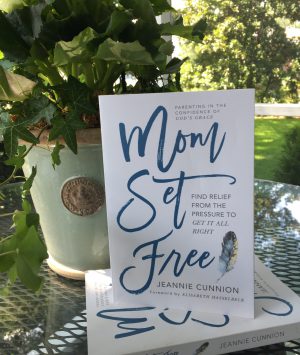Friends, you may know that we’re in the middle of “Teens Week” right now on my Instagram page with printables, interviews, and articles every day—resources designed specifically to equip you to pray for your teenagers. I wrote this piece about teens and technology for our friends over at Club31Women (which has a new look, along with several new contributors you’ll be HAPPY to meet!), and I’m delighted to share it with you.
Technology and Your Teen: How to Fight the Digital Battle

Technology is the number one reason parents say that raising teens today is more complicated (and difficult) than it was in the past.
For all of its blessings—things like ready access to information, easy and efficient communication, and the ability to build social and business networks—technology can also scare us. As parents, we may feel out of control or overwhelmed by the ever-rising tide of new apps, platforms, and devices. We may worry about the proven effects of social media use—everything from peer pressure and cyberbullying to sleeplessness, low self-esteem, and increased anxiety. And then there’s pornography. Depending on which study you cite, the average age of a child’s first exposure to porn is somewhere between eight and eleven years old.
It can feel like we are under a constant attack (and we are). But what can we do?
We can take our cue from Nehemiah, the Old Testament guy who faced threats as real as the ones that stream into our homes every day. As Nehemiah and his fellow Jews worked to rebuild Jerusalem, their enemies kept up a constant barrage of insults and attacks. In response, Nehemiah did three things: He posted a guard, made a plan to fight back, and prayed.

Here’s what this might look like for us:
Post a guard. “Above all else,” the Bible says, “guard your heart, for everything you do flows from it.” (Proverbs 4:23) In addition to things like installing filters and having access to the passwords on our teens’ devices, let’s be intentional about teaching our kids to guard their time, and their hearts, against the mindless scrolling and empty entertainment that screens can deliver—along with feelings of inferiority, loneliness, and depression.
Make a plan. It’s been said that “more is caught than taught,” and a key ingredient in any successful family strategy is for parents to model the behaviors they want their kids to adopt. What this actually looks like will vary between families, but think about what you want to see happen—more in-person conversation, for instance, or better sleep—and then commit to the actions that will help get you there. Maybe you turn off your phones at the dinner table, designate car time as conversation time, or put your devices “to bed” before you go to sleep (and don’t wake them up until after you’re up and dressed).
Pray. Nehemiah’s battle strategy called for unity among the Israelites and a willingness to fight together to keep everyone safe. Nobody worked alone; they used a buddy system—with each worker carrying a weapon along with their tools and building materials. At the first sign of an invasion, Nehemiah would have his own buddy sound the trumpet, and the Israelites would close ranks to repel the attackers.
“Do not be afraid,” Nehemiah exhorted his people. “Remember the Lord, who is great and awesome, and fight for your brothers, your sons, your daughters, your wives, and your homes.” (Nehemiah 4:14)
We can tap into that same unity. Instead of fighting the internet invasion on our own, let’s partner with other parents in our churches or neighborhoods, using our “sword”—which is God’s Word—to give power and life to our prayers.
Prayers for Protection and Peace
As we think about how to pray specifically for our teens and how they use technology, we can pray both defensively and offensively.
Defensively, we can ask God to put a “wall of protection” around our teens’ hearts and minds. (Job 1:10) We can ask him to guard what they see, since the “eye is the lamp of the body,” opening the door to darkness or light. (Matthew 6:22-23) And we can trust God to protect our teens with his righteousness, delivering them from loneliness, trouble, and shame. (Psalm 25:16-21)
Offensively, we can pray that our teens will be “devoted to one another in love, honoring each other above themselves.” (Romans 12:10) We can ask God to prompt them to “walk in the light, as he is in the light,” so they will have fellowship with one another and be cleansed from all sin. (1 John 1:7) And we can pray big-picture prayers, asking God to help our teens think about whatever is true, noble, right, pure, and admirable—whatever is excellent and praiseworthy. (Philippians 4:8)
As we pray for our teens, let’s also pray for ourselves, asking God to keep us in perfect peace as we trust his provision. (Isaiah 26:3) We don’t have to live in worry or fear; instead, we can slip our hand into God’s and fight for the people we love.
❤️
Let’s make this personal.
What role does prayer play in your parenting? If you’re not sure where to begin, ask God to open your eyes to the good things he wants to do in your family. Pick one or more of the verses or prompts in this post and commit to partnering with God, through your prayers, to accomplish his best purposes in the lives of your teens. As you pray, believe that God is at work, and trust him not just for the teenager you see today, but for the person that he or she is becoming.
You can read more about how prayer opens the door to God’s provision in Praying the Scriptures for Your Teens, or visit JodieBerndt.com to access free printables, including a prayer calendar and a collection of a prayer cards to help you pray specifically about twelve different topics in your teen’s life.


You can also download a study guide designed to help you dig deeper into the Bible as you pray. The guide is a BRAND NEW resource, so grab a friend or three and do it together. Because the teen years, perhaps more than any other, are when we need our people to come alongside us and pray. We’re all in this together!
























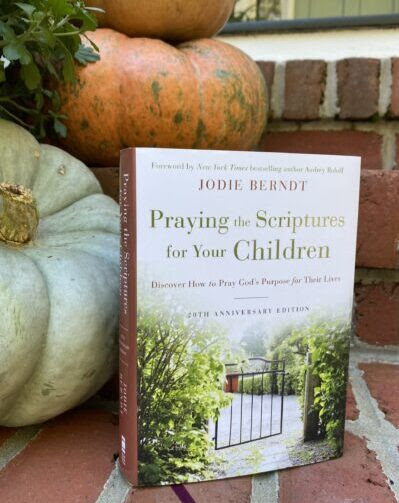


































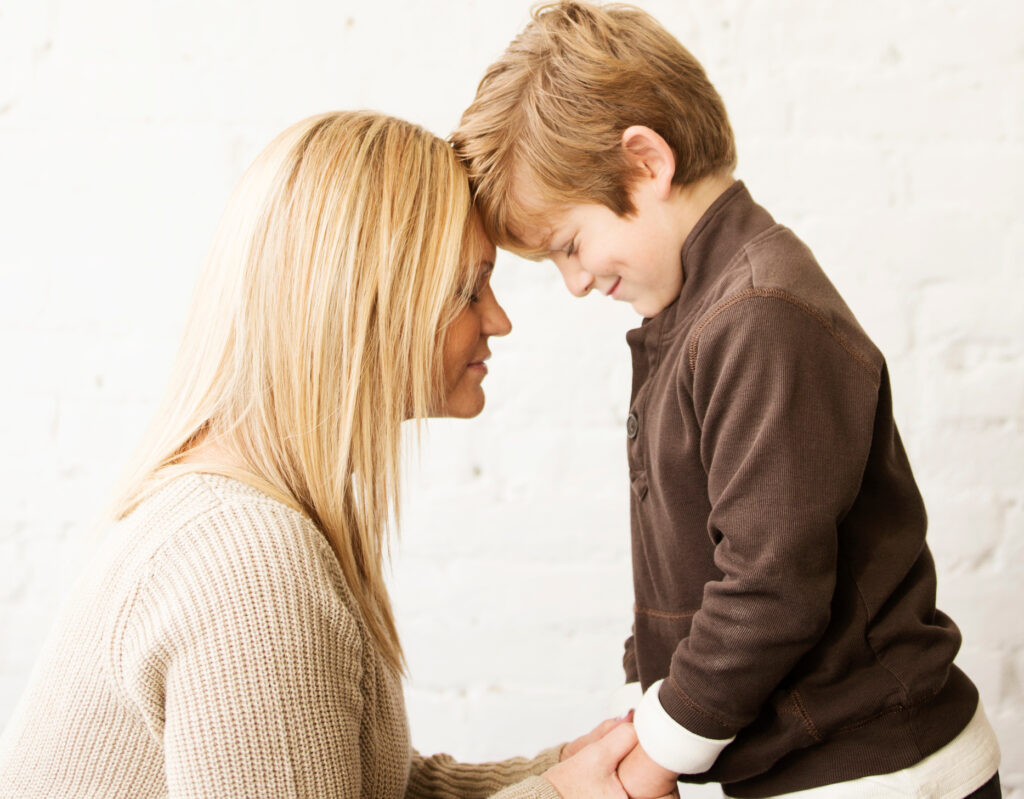
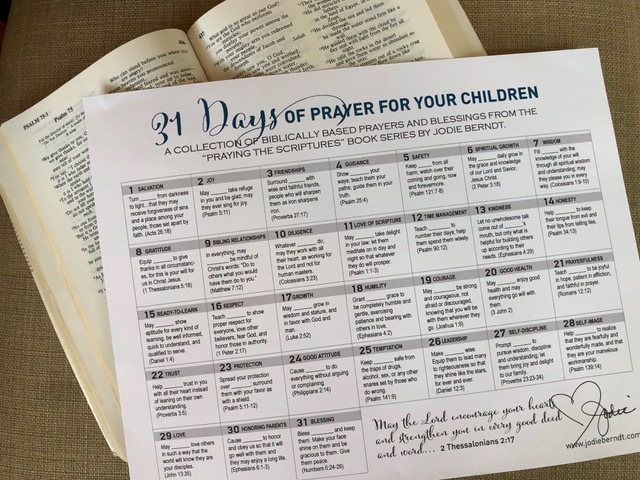
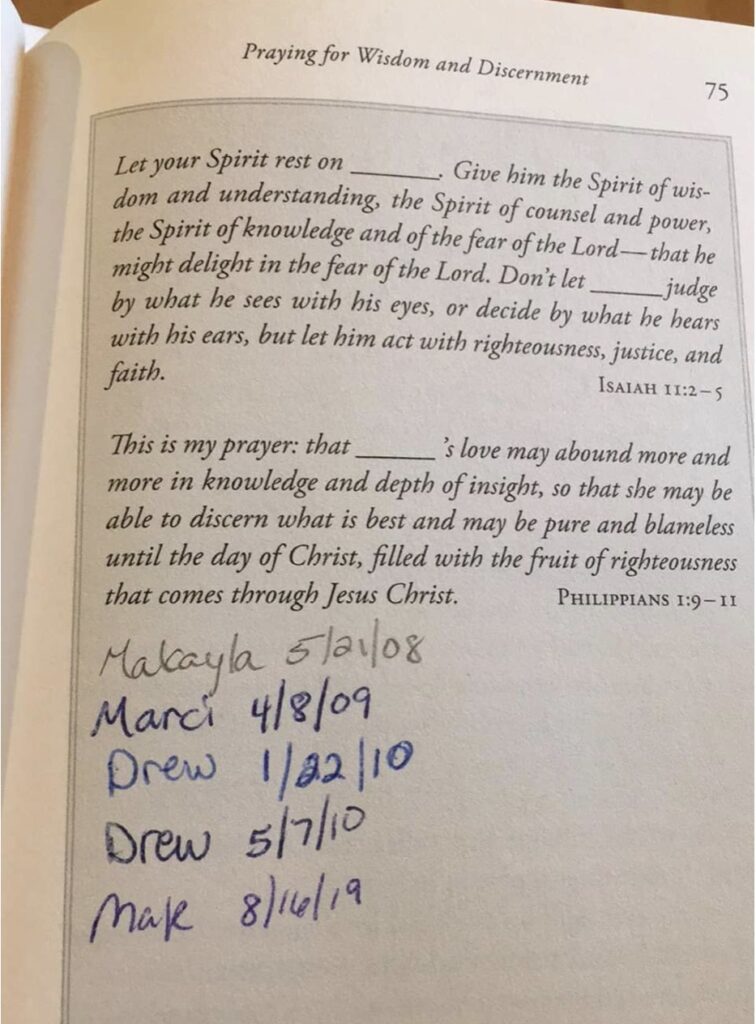
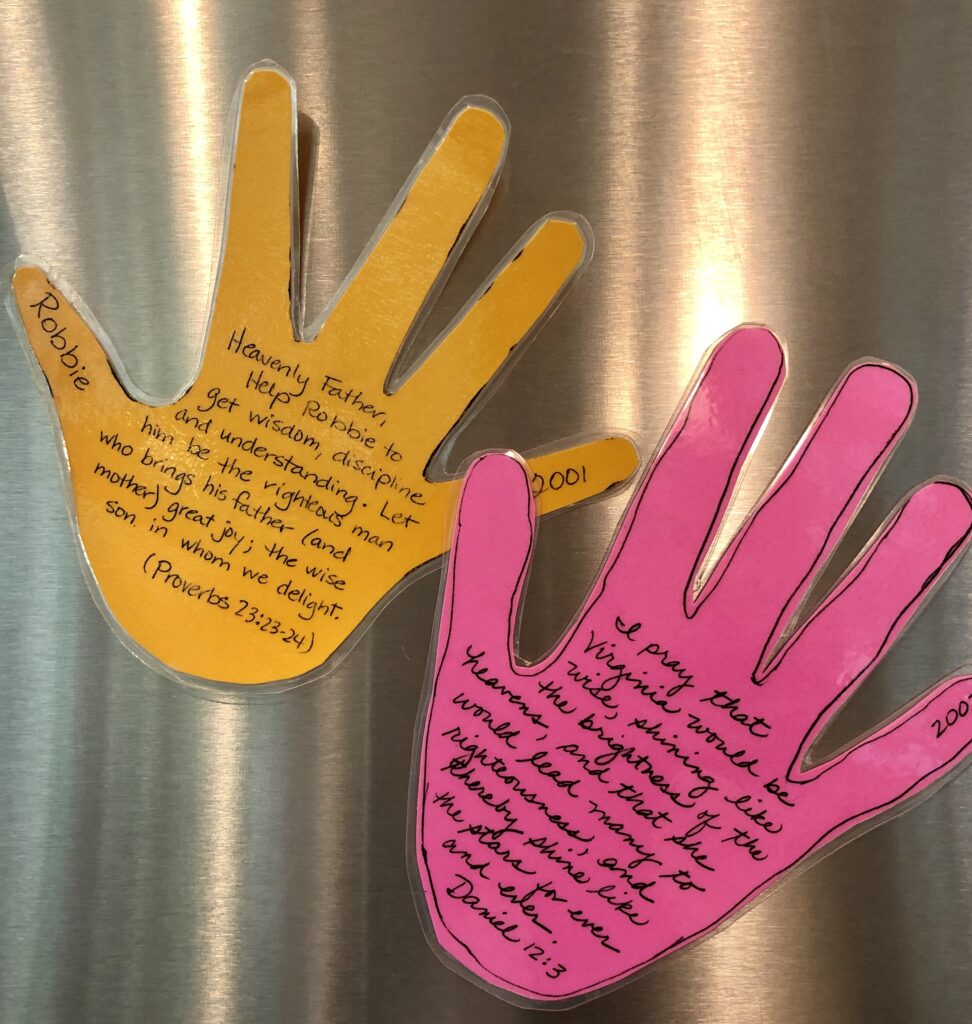


































 The guide includes 21 prayers, all neatly divided by seven so that you can pray one every day for three weeks.
The guide includes 21 prayers, all neatly divided by seven so that you can pray one every day for three weeks.



